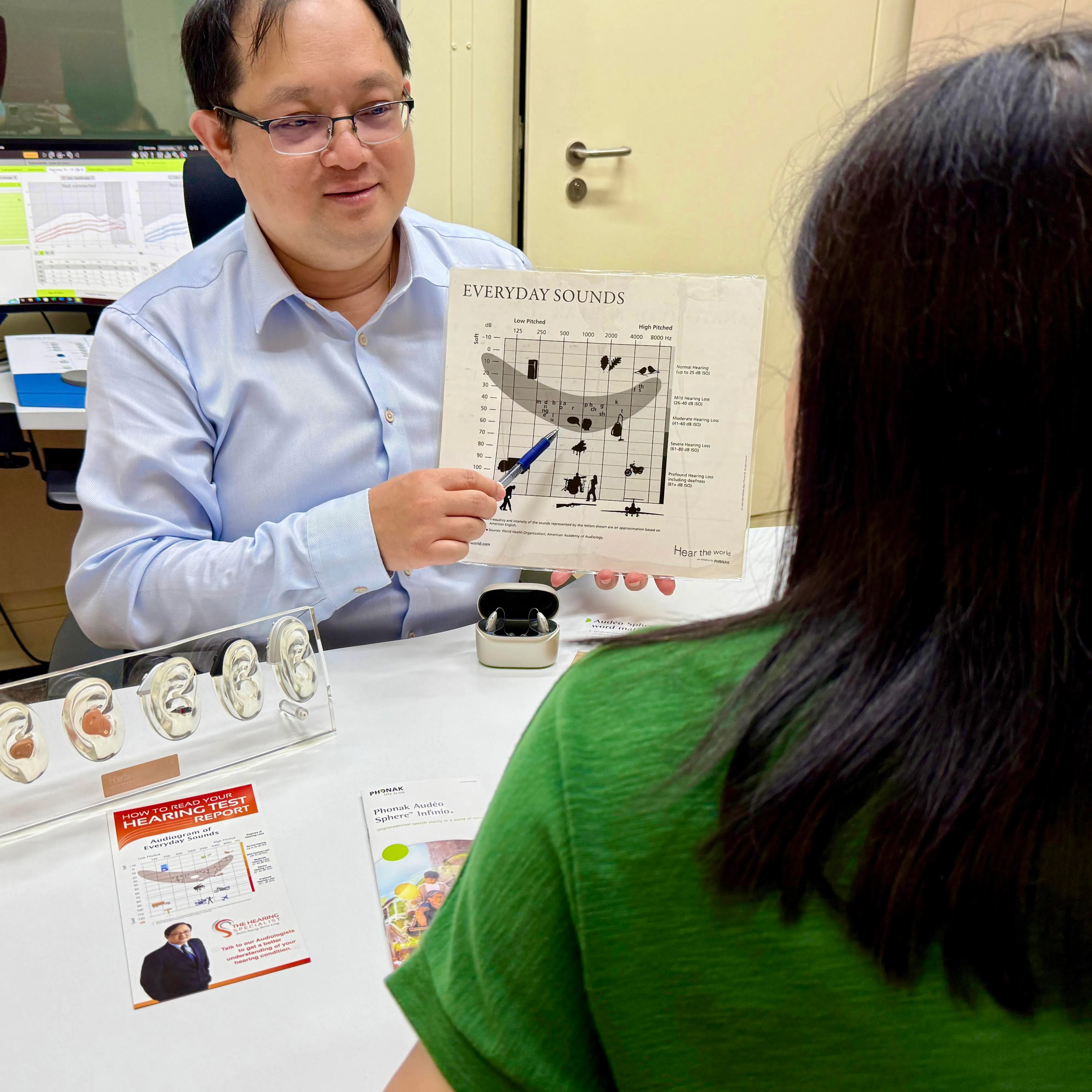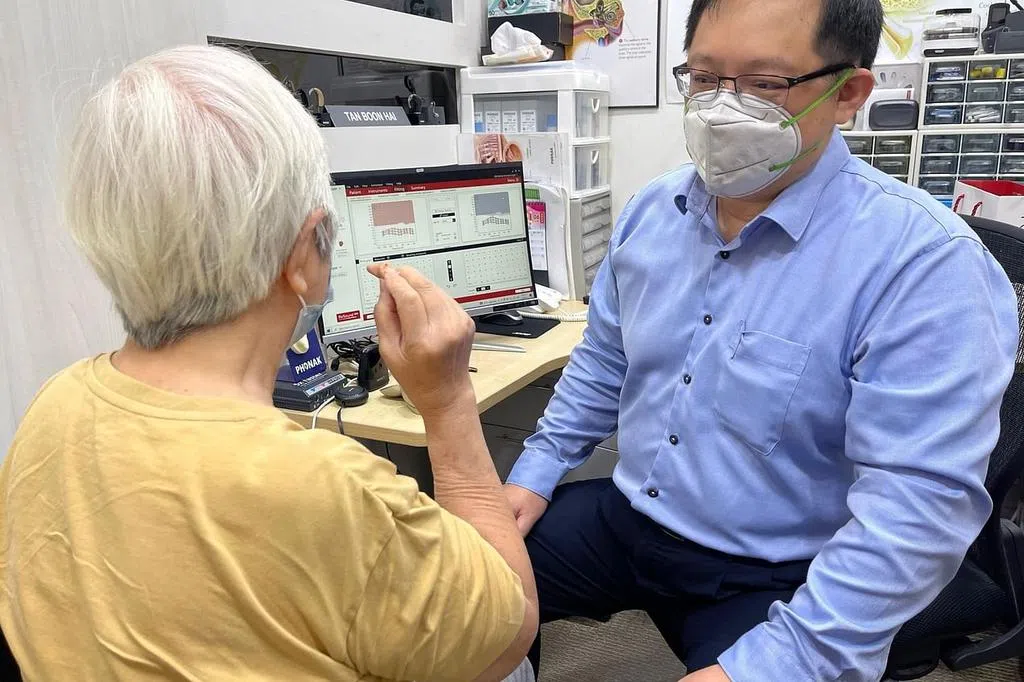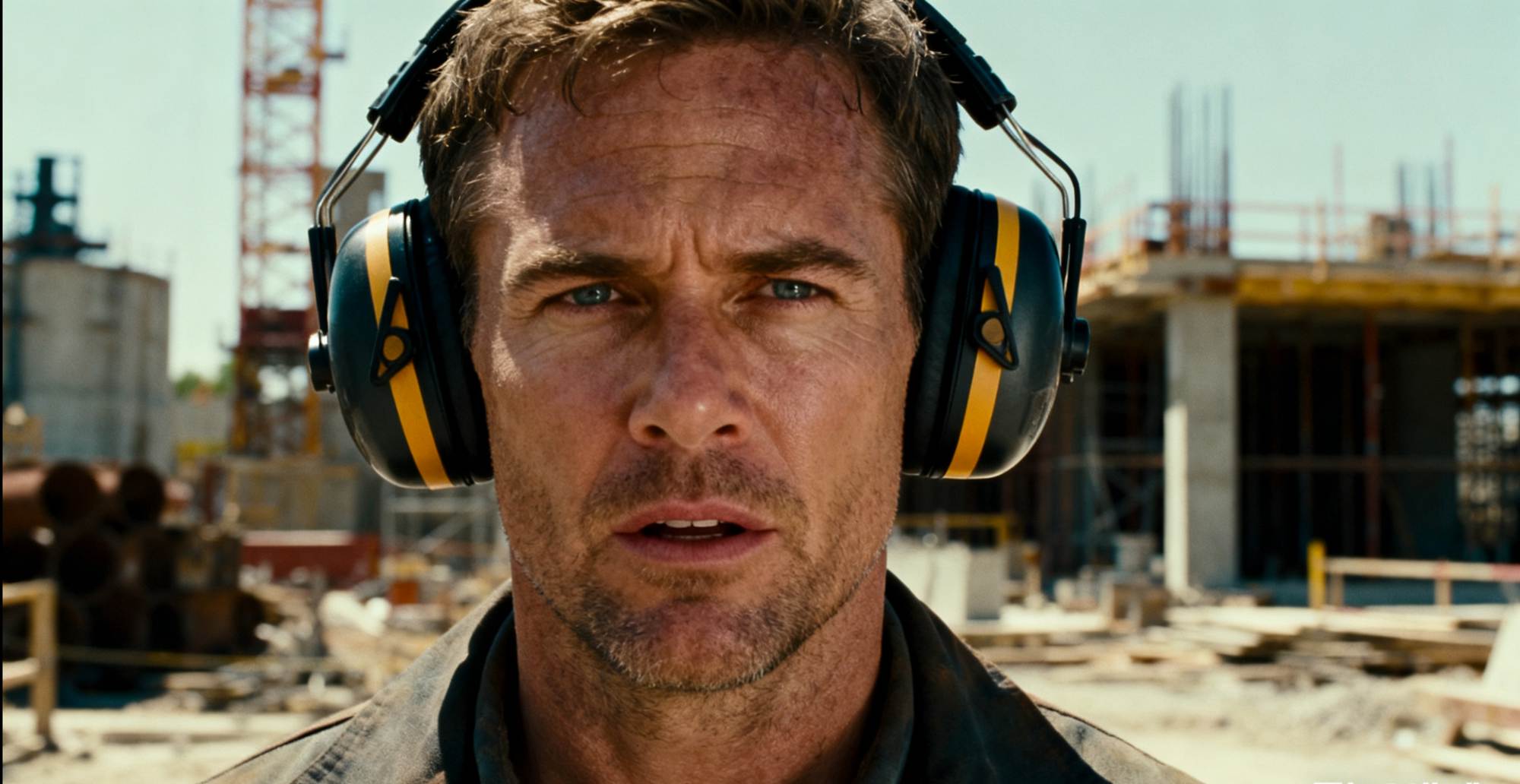How many people worldwide have hearing problems? According to the World Health Organization, over 1.5 billion people worldwide currently experience some degree of hearing loss. This equates to approximately one in five people experiencing hearing loss. Of these, approximately 430 million have moderate or more severe hearing loss and require active rehabilitation intervention, such as hearing aids.
Typically, initial hearing aid users who experience discomfort and lack timely guidance can become frustrated, lose confidence, and reduce their use.
Chen Wenhai, Chief Audiologist at The Hearing Specialist, points out that the success of hearing aid fitting depends on two key factors: precise implementation of technical requirements and systematic management of the rehabilitation process.

Chen Wenhai said, "As hearing experts, we have encountered countless patients with hearing impairments. Our greatest satisfaction comes from helping them and their families regain the joy of hearing." Many patients are not first-time users of hearing aids, but they give up due to discomfort, often using them for less than six months. Common reasons include:
• The amplified sound is too noisy and harsh;
• Hearing improvement is not significant; they still cannot hear family and friends clearly in noisy environments such as parties or dinners;
• They have difficulty wearing the hearing aids themselves.
Further Reading

Case Study: From Rejection to Acceptance
Chen Wenhai shared a case: Mr. Huang's hearing had declined significantly in recent years, and he came to the clinic accompanied by his daughter. About five years ago, Mr. Huang had been fitted with binaural hearing aids at another hospital, but abandoned them after less than six months. To this day, he still remembers how noisy and uncomfortable the hearing aids were. Although the hospital provided him with various accessories, he had no idea how to use them. Due to this unpleasant experience, he refused to try hearing aids again. Five years later, his daughter finally persuaded him to come for a consultation. After wearing the latest AI-powered hearing aids, Mr. Huang not only heard more clearly and communicated more easily, but also experienced reduced stress and rediscovered the joy of socializing, engaging in activities he loved.
Chen Wenhai pointed out that such cases are not uncommon. The key issue lies in patients' lack of understanding of existing hearing aid technology, such as insufficient knowledge of the design principles and actual functions of hearing aids. A precisely fitted hearing aid should be tailored to the patient's needs in terms of model and style, with personalized adjustments to the details of each component to optimize sound quality and ensure comfort and practicality. This requires professional guidance from experienced audiologists to help patients build and gradually adapt to hearing aid technology. This process necessitates close follow-up services, using progressive training and support to help users gradually adapt to their hearing.
Bluetooth Hearing Aid Makes Watching TV Easy The impact of hearing loss goes far beyond simply not being able to hear clearly; it can also alter a patient's behavior, social interactions, and psychological state, causing them to gradually become less sociable and potentially leading to low self-esteem, anxiety, or depression.
Chen Wenhai says that many patients, including their accompanying children, often believe that the Bluetooth function of hearing aids is unnecessary. However, the wireless Bluetooth connectivity is an indispensable core feature of hearing aids. He said, "With the help of Bluetooth technology, the sound from TVs and mobile phones can be streamed directly to the hearing aids in optimal quality. Many elderly people who love watching TV can regain clear sound, without having to strain to stare at subtitles or watch programs in silence." Mr. Huang, one of the aforementioned cases, said during his follow-up visit after wearing his new hearing aids for a month, that he could now hear every word clearly while watching TV without relying on subtitles, his joy evident.
Furthermore, users can once again communicate with their children and grandchildren by phone, reconnecting with their surroundings.
AI Noise Cancellation Enhances User Comfort
The second core technology is AI artificial intelligence noise cancellation technology. If one is in a state of uncorrected hearing loss for a long time, the brain gradually adapts to a silent environment and becomes sensitive to or even uncomfortable with volumes that are considered normal by most people. Advanced AI noise cancellation technology not only improves the clarity of speech in noisy environments, but more importantly, enhances the comfort of using hearing aids in noisy settings.
Chen Wenhai said that when patients develop confidence in hearing aid technology, their willingness to wear them also increases. Once users develop intrinsic motivation, they gradually adapt to the hearing aid and extend the wearing time. This process helps the brain relearn to recognize sounds, thereby improving hearing ability and quality of life.
He said, "While hearing aids may not restore hearing 100%, once hearing is restored to 70% to 80%, most patients no longer need to strain to hear and can regain an independent and happy life."



